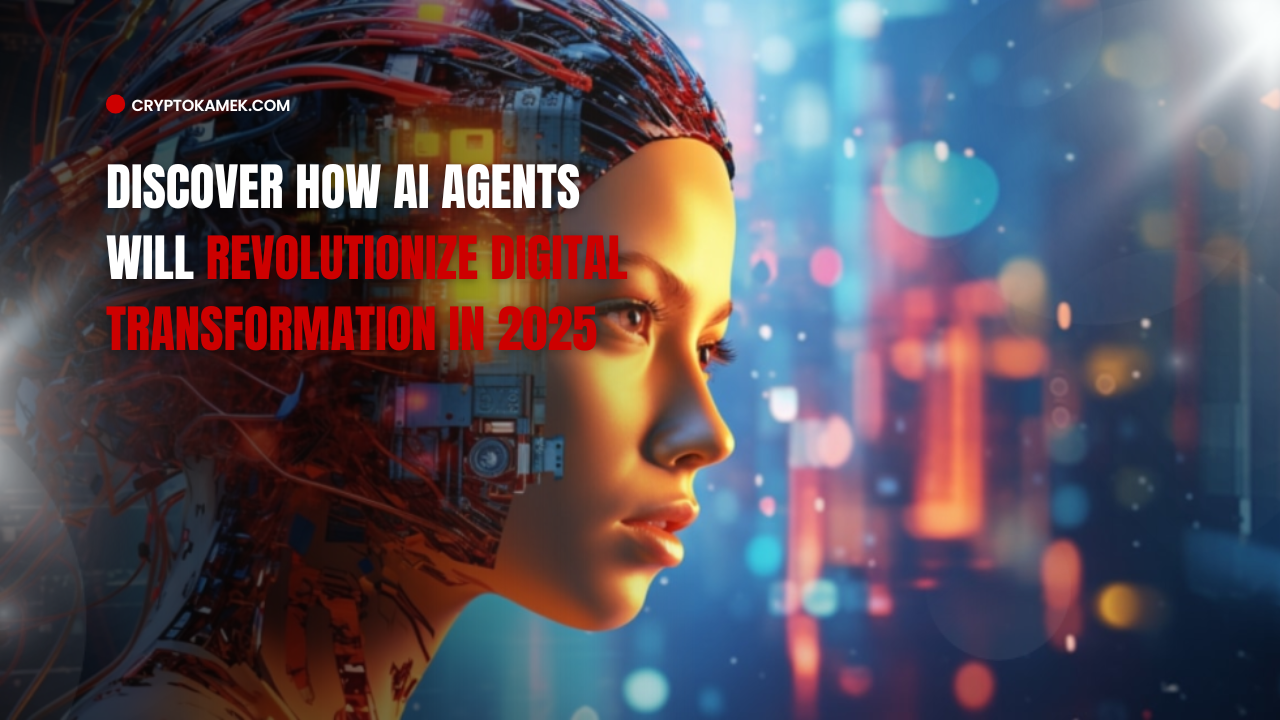

How AI Agents Will Transform Digital Marketing in 2025
Highlights:
- AI agents are game changers in digital transformation for 2025.
- Businesses must adopt AI agents to stay competitive.
- AI agents enhance customer experiences through personalization and efficiency.
- Automation of repetitive tasks empowers marketers to focus on innovation.
- Multi-agent systems will drive collaboration and efficiency in digital marketing.
- Ethical and responsible AI use builds trust with customers.
AI agents are set to revolutionize digital marketing in 2025, becoming game changers in digital transformation. These intelligent tools leverage advancements in Natural Language Processing (NLP), machine learning, and other technologies to redefine how businesses operate and interact with customers.
In this evolving landscape, AI agents play a critical role in automating tasks, enhancing customer experiences, and driving efficiency. For businesses, adopting AI agents is essential to remain competitive and thrive in the fast-paced world of digital marketing.
What Are AI Agents?
Understanding AI Agents
AI agents are software programs designed to act autonomously in achieving specific goals. Unlike traditional tools, they can perceive their environment, analyze data, and make decisions, often mimicking human intelligence.
Types of AI Agents
- Reactive Agents: Operate based on current inputs without using memory.
- Deliberative Agents: Plan actions based on past experiences and future predictions.
- Collaborative Agents: Work with other agents or systems to achieve complex tasks.
Artificial intelligence is the backbone powering these agents, enabling them to learn, adapt, and optimize their performance over time.
The Impact of AI Agents on Digital Marketing by 2025
Reshaping Digital Marketing Strategies
AI agents are transforming marketing strategies by offering real-time data analysis, predictive insights, and personalized customer interactions. They can help businesses identify trends, target audiences more effectively, and create content tailored to individual preferences.
Integration into Marketing Workflows
In 2025, AI agents will become a core component of marketing workflows. They will handle repetitive tasks, such as:
- Automating email campaigns with personalized messages.
- Managing ad placement based on audience behavior.
- Optimizing SEO strategies using real-time analytics.
By taking over these responsibilities, marketers can focus on creative and strategic aspects of their work.
Enhancing Customer Experience with AI Agents
Personalized Customer Interactions
One of the most exciting applications of AI agents is their ability to deliver highly personalized customer experiences. By analyzing customer data, AI agents can provide:
- Tailored product recommendations.
- Dynamic pricing based on user behavior.
- Instant responses to queries through AI-powered chatbots.
Imagine a virtual shopping assistant that understands your preferences, suggests products you’ll love, and answers your questions instantly. This level of personalization builds stronger customer relationships and drives loyalty.
Driving Automation and Efficiency in Marketing
Streamlining Marketing Tasks
AI agents excel at automating repetitive tasks, freeing up time for marketers to focus on innovation. Some of the key benefits include:
- Faster content creation using AI-driven tools.
- Automated social media management with optimized posting schedules.
- Data analysis and reporting without manual effort.
Benefits of Agent-Driven Workflows
Agent-driven workflows boost efficiency and reduce human error. They ensure that campaigns run smoothly, budgets are optimized, and resources are used effectively.
Exploring Multi-Agent Systems as the Future of Digital Transformation
Transition to Multi-Agent Systems
By 2025, the shift from single-agent to multi-agent systems will redefine digital marketing. Multi-agent systems allow multiple AI agents to collaborate, enabling businesses to manage complex tasks more effectively.
Importance of Interoperability
For multi-agent systems to succeed, seamless integration and interoperability across platforms are crucial. These systems must communicate effectively with existing tools, such as CRM software and analytics platforms, to deliver value.
Addressing Challenges in Implementing Multi-Agent Systems
Data Privacy and Compliance
Data privacy concerns are a significant challenge when implementing multi-agent systems. Businesses must comply with regulations such as GDPR and ensure that customer data is handled securely.
Integration Complexity
Integrating multi-agent systems into existing infrastructures can be complex. To overcome this, businesses should:
- Invest in scalable technology solutions.
- Collaborate with AI experts for smooth implementation.
- Train teams to work effectively with AI agents.
Sector-Specific Applications of AI Agents
Retail Sector
AI agents will play a pivotal role in optimizing pricing strategies and inventory management in the retail sector. By analyzing sales trends and customer behavior, they can help retailers stay ahead of demand.
Financial Services
In financial services, AI agents will enhance fraud detection and customer service. For example:
- Detecting unusual transactions to prevent fraud.
- Providing instant support through AI-driven chat systems.
The Evolution Towards Web3 Technologies
Role of AI Agents in Web3
AI agents will drive the evolution of Web3 technologies, integrating seamlessly into decentralized networks. They will support blockchain ecosystems by:
- Verifying transactions.
- Managing smart contracts.
- Automating decentralized applications (dApps).
These advancements will make Web3 technologies more accessible and efficient.
Ethical Considerations When Using AI Agents
Importance of Responsible Implementation
As businesses adopt AI agents, ethical considerations must remain a priority. Human oversight is essential to ensure that AI systems act responsibly and transparently.
Establishing Ethical Guidelines
To use AI agents effectively and responsibly, companies should:
- Develop clear guidelines for ethical AI use.
- Conduct regular audits to prevent biases in AI algorithms.
- Ensure transparency in AI-driven decisions.
Responsible implementation will build trust and foster positive customer relationships.
Conclusion: Embracing Change with AI Agents
AI agents are set to become the game changers of digital transformation in 2025. From enhancing customer experiences to automating marketing workflows, their potential is limitless.
To stay competitive, businesses must:
- Embrace AI-driven technologies.
- Address challenges like data privacy and integration complexity.
- Commit to ethical and responsible AI implementation.
By leveraging the power of AI agents, companies can drive innovation and thrive in an ever-evolving market. The future of digital marketing is here—are you ready to embrace it?at AI agents become valuable tools that benefit both organizations and society at large.
References:






